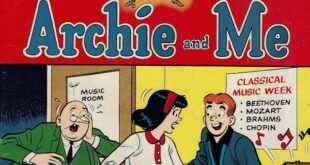Nothing caused butterflies to blossom in my stomach more luxuriantly than my father’s weekend home-repair sessions. Not only couldn’t I go out to play but I soon heard myself being ordered to fetch him an awl from the tool chest — and I came back with a file. Or he’d tell me to get him a plane, and I brought him a plumb line. Or he asked for a Phillips screwdriver, but all he got was a regular one.
Sometimes he’d tell me to hold something straight so that he could hammer it or screw it in somewhere or saw it in half or bend it or polish it or modify its essence in some way. Since I usually had little idea of his intention, I held whatever it was sideways or not firmly enough or not promptly enough or with a befuddled or unenthusiastic look on my face. This elicited muttered commentaries on the sorry state of American childhood — most of them rated PG, some R, and a very few NC-17 — or just a furious hiss if my stupidity was beyond belief.
While my mother thought I was smart because her notion of intelligence focused on school, my father’s gravitated toward catching fish, repairing whatever required it, and working deftly with wood, metal and tools. It was the scribes and doctors of the Law on one side versus Noah, Nimrod and St. Joseph the Carpenter on the other. Despite my total lack of interest in the manly arts personified by my father, I occasionally felt the need to gain his respect in that arena.
Every once in a while, the kids in my South Bronx neighborhood pilfered planks or other wooden odds and ends from some local construction site and, using their fathers’ tools, would start sawing and hammering away right on the sidewalks. After a few hours’ work, some of them rode away on noisy go-carts made with a wooden crate, a plank and a disassembled roller skate. Others tried out their newly made “zip guns” (actually, carpet guns). These pistol-like wooden weapons, when fitted with a thick rubber band over the length of the barrel, were deployed to shoot wedges of cast-off linoleum, about the size of a guitar pick, toward other boys’ faces and heads.
Inspired by my father’s Japanese rifle, which he somehow smuggled home from Okinawa and kept, unloaded, in his bedroom closet, I decided to construct a weapon much larger and more powerful than a mere zip gun. There was only one problem. I noticed that other kids took the time to measure and saw precisely; to make sure the plywood handle fit snugly between the two carved pieces of wood that constituted the barrel, and to smooth away any rough edges with sandpaper. But I had little patience working with my hands and no sense of how anything was actually put together.
I was the kind of kid who pried open his Hopalong Cassidy watch only to be surprised and disgusted by the absurd number of tiny wheels, gears and gossamer-like gizmos inside. Far from trying to put it all back together again, I decided I’d much rather live in a world without Time than to tinker with something that complicated and boring. This policy toward the mechanical realm didn’t bode well for my zip rifle.
Anyway, it was all finished in a jiffy. At least I was shrewd enough to sneak it upstairs and hide it from my mother, with her phobia of guns stemming from her early life in Italy during the war. I thus waited until my father got home before liberating the rifle from my dresser drawer. As I ran to show it to him, I saw the look on his round ruddy face change from amused skepticism to incipient alarm.
Turning the yard-long contraption in his hands, he feared his young son might be, at very best, an imbecile, since even a moron would know better than to construct a so-called rifle by driving a single nail through the ends of two long flat sticks. The silly wooden handle, attached to the rifle with another single nail, didn’t help matters much. The result was more like the collapsible segments of a carpenter’s jointed rule than a stable weapon capable of firing linoleum wedges — or anything at all.
“This is very sad,” he said, flip-flopping the rifle open and shut (so to speak) while the extra-long rubber band nailed to the top flapped around. “This is really pathetic.” Except he said it in Italian: “Quest’ è proprio patetico.”
Lesson beautifully and economically conveyed: Don’t bark up the wrong tree, son.
 Fra Noi Embrace Your Inner Italian
Fra Noi Embrace Your Inner Italian






